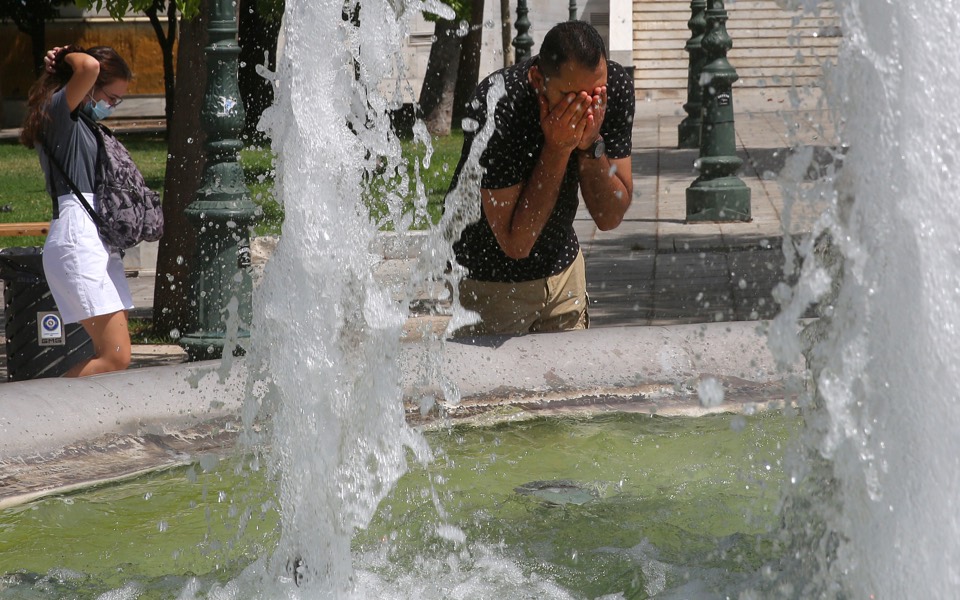Country braces for another heat wave

Authorities have warned of an impending weeklong heat wave during the summer tourist season, with a high risk of dangerous wildfires, as much of southern Europe swelters under high temperatures.
The Ministry for Civil Protection and Climate Change said southwesterly winds from Africa would bring temperatures sometimes exceeding 40C at least until July 19.
The new heat wave comes on the heels of the hottest June on record in Greece, according to preliminary weather service data. It was also the hottest globally, according to the European climate service, Copernicus.
People have been advised to wear light clothing, drink plenty of water and avoid long hikes during the hottest part of the day. In June, several tourists were found dead on Greek islands after setting out on long walks.
The interior of mainland Greece (mainly in the west and north) and the Eastern Aegean islands will experience the hottest temperatures.
In the coastal areas of the mainland, the maximum temperature value will be 2-4C lower due to the sea breeze.
On Saturday, the maximum temperature in Attica, which includes Athens, will be 38-39C; 37-39C in Macedonia, Thrace and Epirus and 40-41C locally in central Macedonia, 38-40 and up to 41C in some parts of Central Greece, Thessaly and Peloponnese; 36-38C in the Ionian Sea, Eastern Aegean, Dodecanese and southern Crete; and 33-35C in the rest of the island country.
On Sunday, the west, north, Eastern Aegean and Dodecanese will be hottest.
Attica will see maximum temperatures of 39-40C. Temperatures will reach 38-40C in Macedonia, Thrace and Epirus and 41-42C locally in Central Macedonia; 40-42C in western Central Greece, Thessaly and the western Peloponnese; 40-41C in eastern Central Greece and the eastern Peloponnese; 37-39C in the Ionian Sea, the Eastern Aegean, Dodecanese and southern Crete; 34-36C on other islands.
On Monday, the maximum temperature will reach: 39-40C in Attica; 39-40C in Macedonia, Thrace and Epirus and 41-42C locally in Central Macedonia; 41-42C and possibly 43C locally in western Central Greece, Thessaly and the western Peloponnese; 41-42C in eastern Central Greece and the eastern Peloponnese; 39-40C in the Ionian Sea, Eastern Aegean, Dodecanese and southern Crete; and 35-37C on other islands.
Temperatures are expected to peak in the middle of next week.
The service warned that much of the country will endure high thermal stress during the week.
The Civil Protection Ministry has warned of a very high risk on Friday and Saturday. Officials have described this summer as the most dangerous in the past 20 years for wildfires, following an unusually rainless winter and spring that have left vegetation and forests tinder-dry.
Three fires broke out Friday in northern Greece, although two of them were quickly brought under control.
Firefighters, backed this summer by drones and a strengthened fleet of water-bombing aircraft, have dealt with more than 2,000 wildfires since the beginning of June. Most were tamed shortly after they broke out, which limited damage to buildings or property. [Kathimerini/AP]





